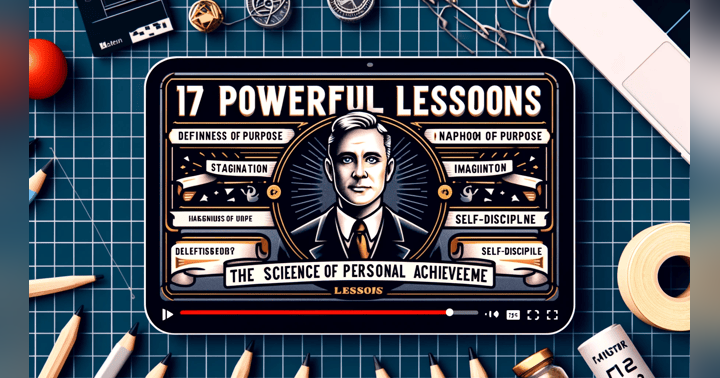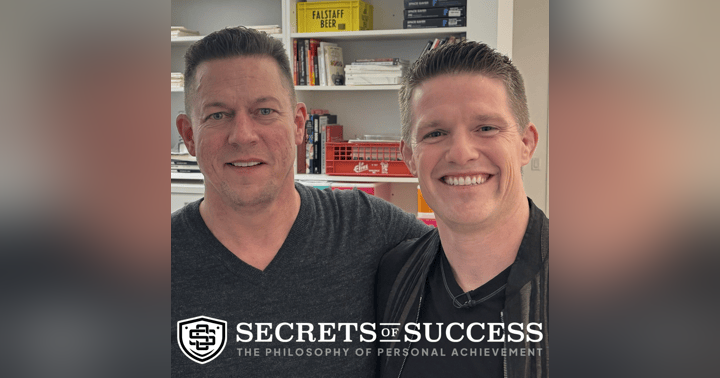Can You Trust Your Intuition? The Science Behind Gut Feelings

In her book “How to Analyze People on Sight,” Elsie Lincoln Benedict teaches readers to hone their intuition for reading people.
In his book, “The Secret of the Ages,” Robert Collier writes about sharpening your intuitive decision-making skills. One of his tips is to briefly think of the issues just before going to sleep.
Intuition. It's that gut feeling that tells us something is wrong or right.
We give our intuition all the credit when our thoughts and decisions turn out right. However, when it leads us astray, it's largely forgotten.
Should we trust our intuition? The answer is, "It depends." Let’s delve deeper into understanding what intuition is, where it comes from, and whether we should trust it.
What Exactly is Intuition?
Sometimes called a snap judgment, intuition is your mind's way of practicing efficiency. Unbeknown to you, your brain has picked up on patterns in life and filed them away in a little "shortcuts" folder in its hard drive.
Our brain creates rules of thumb (called "heuristics" in psychology) to automate our thinking and conserve energy. Sometimes, you don't need to conscientiously look at all the facts, do the math, and research the best course of action.
Consider playing catch, for example. If you've had practice throwing and catching, your brain quickly helps you position yourself to catch a ball. You run to the correct spot, hold your hands just right, and anticipate its speed and drop in height.
Intuition is not the same as instinct. Instinct is an automatic and uncontrollable response to external stimuli. Back to that game of catch–intuition is knowing how to catch the ball; instinct is wincing as it hits you in the head.
Psychological Research into Intuition
Nobel Prize-winning psychologist and author Daniel Kahneman was so interested in how we make decisions (fast and slow ones) that he decided to research the subject.
More specifically, he wondered if we could trust our intuition when making financial decisions, like what investments to choose in the stock market.
He concluded that we can't always trust our intuition. And he figured out why:
Intuition isn't innate at all. We aren't born with it. We learn it based on past experiences and knowledge. Then, we forget that we learned it, and the reactions become automatic.
It's how a firefighter picks up on tell-tale signs of a house on the brink of collapse during a fire and warns his co-workers. Or the way a nurse experienced with stroke victims might tell it's happening to a stranger just by looking at them.
So, Kanheman and other psychologists taught us a few things about intuition, and it's this: Sometimes you can trust it. Sometimes you can't.
When Rationale is Better
When can't you (or shouldn't you) trust your intuition? Kahneman identified two critical components of intuition. They are:
- A High-Validity Environment
You must have had a stable relationship between an effect and the thing that caused it. In our example with the firefighter's intuition that a burning house is about to collapse, the firefighter had experience with the unmistakable sounds, sights, and perhaps smells of a house about to burn to the ground. - Plenty of Learning Opportunities
A cause-and-effect pattern must be highly repeatable to trust intuition. In fact, each individual's unique intuition depends on how often a cause-and-effect pattern is repeated. This is why, in our nurse example, the nurse can identify a person having a stroke by sight. Someone without nursing experience likely wouldn't pick up on the cues.
For these reasons, a "gut feeling" isn't always trustworthy. Take Kahneman's fascination with investments, for example. Buying stocks isn't intuitive. The stock market is unpredictable, and so many things factor into its ups and downs, making it low-validity and lacking learning opportunities.
Rationale wins for all low-validity and opportunity-poor decisions we must make. Want to spend your time or money on a new cause, personal investment, or business venture? If it's complex, uncharted territory for you or a one-of-a-kind deal, research, understand the rules and best practices surrounding it, and gather the data before making a final decision.
Applying the Knowledge
Now that you understand intuition and when to trust it, you can use it to achieve your goals.
Anything you focus your attention on can become one of your brain's shortcuts. Study and practice what you want to get better at.
As Robert Collier's books advise, you can turn conscious knowledge into subconscious intuition. And, as Elsie Lincoln Benedict's books explain, you can sharpen your intuitive people-reading skills, too.
We should rely on our rationale for unfamiliar or complex decisions. Facts, rules, data, technology, and algorithms are necessary for making those kinds of judgment calls.
However, we can grow in knowledge and experience on anything we deem worthy. Our brilliant, energy-efficient brains will file away some of that knowledge and expertise in a shortcut for better intuitive decisions.










